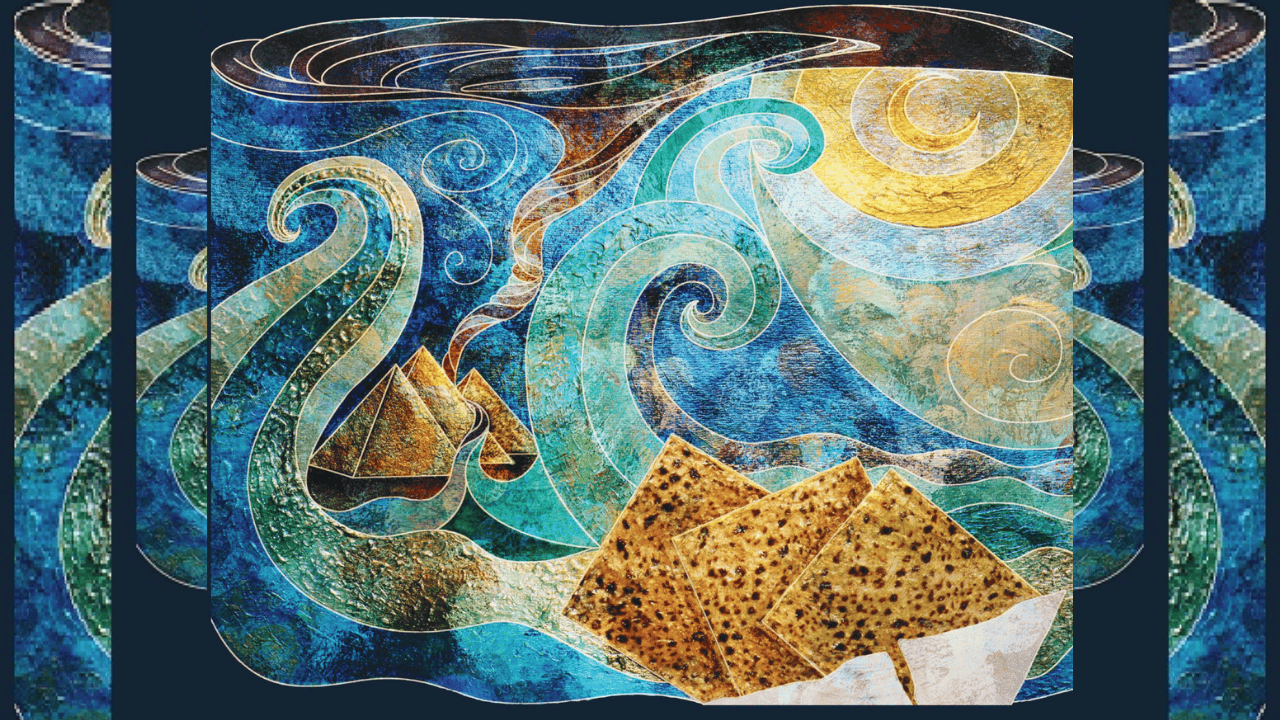“And God spoke to Moses saying: ‘On the day of the first new moon, on the first day of the month you shall raise up the Tabernacle, the tent of Meeting'” (Exodus 40:1-2). The Tabernacle was erected on the first day of the first month of Nisan (Rosh Chodesh Nisan), a very auspicious day, as will be explained more fully at the beginning of the book of Leviticus. According to tradition, Moses erected and dismantled the Tabernacle during the previous week. During those seven days Moses served as High Priest and wore but one simple white cloak, as discussed in “The Holy Garments: A Message of Oneness.” On the first day of Nisan, the eighth day of this process, the Tabernacle was inaugurated.
Given that the Tabernacle’s every component is invested with deep spiritual meaning, especially in terms of its correspondence with creation, as mentioned repeatedly above, here too Moses’ construction and dismantling of the Tabernacle has great significance. Proverbs 24:16 profoundly hints at the meaning of this process: “Seven times a tzaddik falls, but rises.” The verse seems to be conveying the message that the ability to get up after falling even seven times is what defines a successful individual, what distinguishes a winner from a loser.
However, on closer inspection we see that the verse is speaking explicitly about a tzaddik, a righteous person. We might have though that a righteous person, due to his or her elevated spiritual level, would be immune to falling; however, the verse teaches us that not only may tzaddikim fall, but they may even be subject to greater tests and challenges as a result of their higher spiritual elevation. Ultimately, the sign of true tzaddikim is their ability to raise themselves up no matter what the circumstances; they refuse to remain down and certainly never count themselves out.
The process by which the Tabernacle was erected and then dismantled again and again for seven consecutive days conveys the same message as the verse from Proverbs. The Tabernacle is not only a paradigm for creation it also symbolizes the human psyche. The Tabernacle was erected in a manner that reflects the constant ups and downs humans undergo as they face life’s ongoing tests and challenges.
It follows then that the Tabernacle’s inauguration on the eighth day holds great significance. The number seven always connotes a complete cycle, inherent to the natural world, while the number eight represents transcendence of this cycle and the mundane world. Creation occurring over the course of a seven day cycle was reflected by the seven days Moses spent constructing and dismantling the Tabernacle. The inauguration on the eighth day symbolized the essence of the Tabernacle: an additional transcendent level where the human soul rises above the limited boundaries of the finite world to relate directly to an infinite God.
Initially one might have thought that it would have been more appropriate in terms of the cyclical paradigm of creation if the Tabernacle was put up and taken down for six days – to correspond to the six days of creation – and erected permanently on the seventh day – to correspond to Shabbat, the culmination and completion of creation. This would certainly have been logical. By not adopting this obvious correspondence, God teaches us that the Tabernacle has more in common with the transcendence “eight” symbolizes than the natural cycles “seven” signifies.







